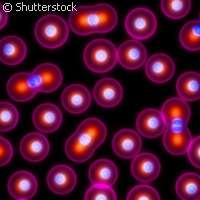Protein in Huntington's linked to neurogenesis

EU-funded scientists have discovered that a mutated protein inherent in Huntington's disease (HD) performs an unforeseen role in neurogenesis. The finding could lead to a better understanding of HD, an inherited neurodegenerative disorder that is characterised by severe psychiatric, cognitive and motor defects, and neuronal death in the brain.
Findings from the study are published in the journal Neuron.
Past studies have demonstrated that mutation of the protein known as huntingtin (htt) is associated with HD. In this latest research, scientists from Belgium, France, the UK and the US have found that the same protein performs a role in the process by which neurons (cells that transmit information) are created.
Senior study author Dr Sandrine Humbert from the Institut Curie in France explained that because of the obvious neurological signs and striking neuronal death in HD most studies on htt function tend to focus on adult neurons. 'However, although htt is not restricted to differentiated neurons and is found at high levels in dividing cells, no studies have investigated a possible role for htt during cell division.'
Known as mitosis, cell division occurs when a single cell divides into two new and identical cells. The process is complex and takes place at various well-defined stages. One of the stages involves a structure called the mitotic spindle.
Two proteins - dynein and dynactin - interact with the spindle. Since htt is known to be linked to the activity of these proteins, the objective of the current research was to determine whether htt was present during mitosis.
Indeed, the scientists demonstrated that htt is essential for control of mitosis, and that the protein is localised at spindle poles during this cell division. Htt is, in fact, required to bring dynein and dynactin to the spindle.
'Our findings demonstrate a previously unknown function for htt protein and open new lines of investigation for elucidating the pathogenic mechanisms in HD,' Dr Humbert noted. 'Our work also identifies htt as a crucial part of spindle orientation and neurogenesis.'
In addition to offering new information on HD pathology, the findings from the research have the potential to fuel our understanding of the dynamics of the human body. The authors write: 'These findings reveal an unexpected role for huntingtin in dividing cells, with potential important implications in health and disease.'
HD causes uncontrolled movements, emotional disturbances, and severe mental deterioration. Unfortunately, the mechanisms leading to the disease are not fully as yet understood.
With up to 100 cases of HD for every 1 million people, Europe has a relatively high prevalence of HD in its population, according to the Huntington's Outreach project for Education at Stanford University in the US. The prevalence of HD is consistent across almost all European countries; only Finland has a notably smaller statistic of around 6 cases per million.
More information: Godin, J.D., et al. (2010) Huntingtin is required for mitotic spindle orientation and mammalian neurogenesis. Neuron, 67, 392-406. DOI:10.1016/j.neuron.2010.06.027












